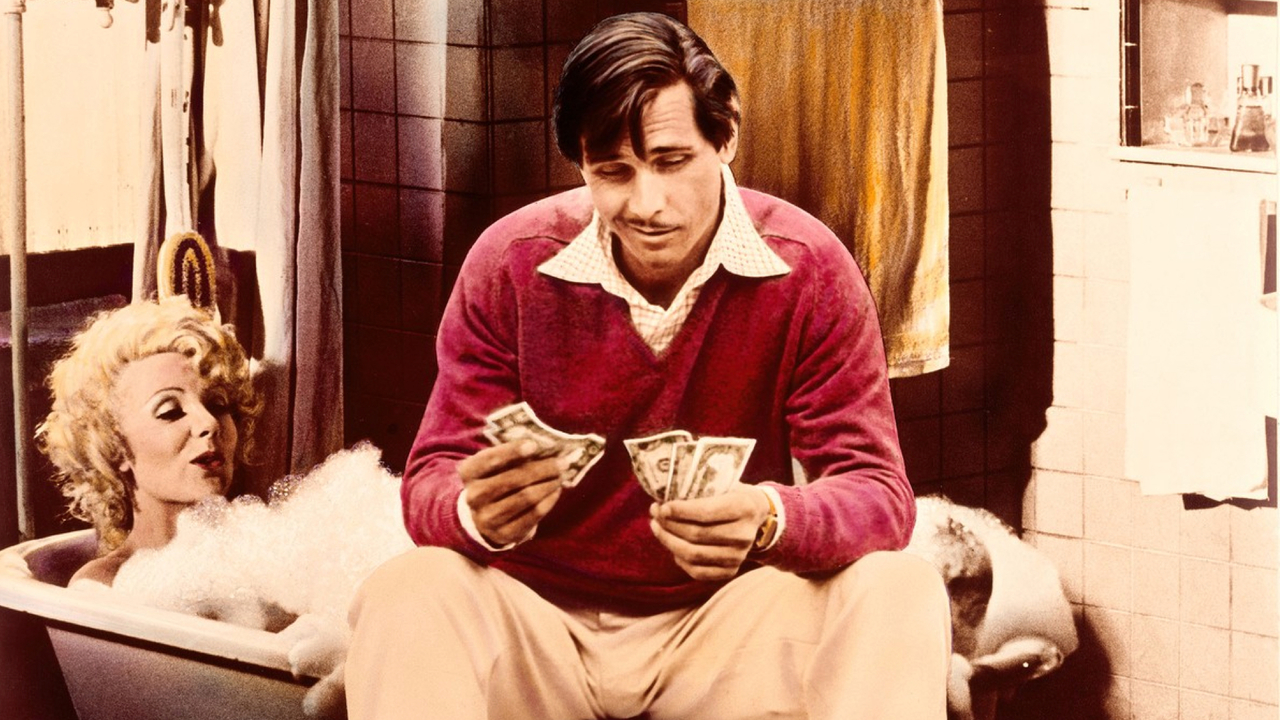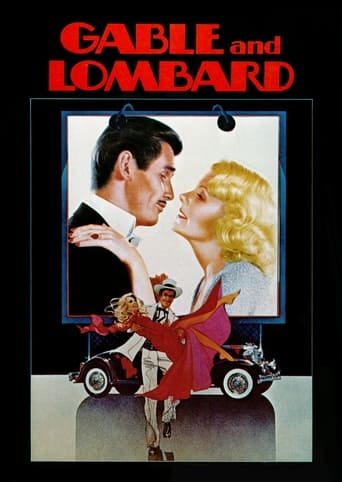

This movie was so-so. It had it's moments, but wasn't the greatest.
... View MoreIt was OK. I don't see why everyone loves it so much. It wasn't very smart or deep or well-directed.
... View MoreIt is neither dumb nor smart enough to be fun, and spends way too much time with its boring human characters.
... View MoreThe movie is made so realistic it has a lot of that WoW feeling at the right moments and never tooo over the top. the suspense is done so well and the emotion is felt. Very well put together with the music and all.
... View MoreThis movie was quite maligned when it came out. Since I had been a big fan of both vivacious Jill Clayburgh and the manly James Brolin at the time I went to see it. Since I was a teen, I took a lot of what was portrayed as quite accurate. True it is a mostly fictionalized account of the two stars, but it has got some redeeming qualities. Namely, Brolin's dead on Gable. He is indeed very good, and I kept forgetting that it was not really Clark Gable. Clayburgh, as attractive as she is does not have Lombard's classic beauty or figure, but she's so gosh darn likable as Lombard one can overlook her shortcomings. Seeing it again recently, Jill Clayburgh as Lombard is a stretch, but I felt she put so much into the character, and a better script couldn't have hurt. Physical aspects aside, the two actors have great chemistry, and one gets the impression they are really crazy about each other. It's ashame that neither Brolin or Clayburgh got more to do...the story does meander at times and the film is a tad too long. Although it's not a great film, it's definitely worth checking out. Be on the lookout for Melanie Mayron as Dixie, before she went from frump to vixen.
... View MoreHighly fictional movie about the love affair between Clark Gable (James Brolin) and Carole Lombard (Jill Clayburgh). It chronicles how they first meet and hate each other but eventually fall in love. The problem is Gable's first wife won't give him a divorce and their studios are threatening to drop them.There are so many factual errors here it's pointless to try and discuss them all. The biggest one for me was the portrayal of Louis B. Mayer (badly played by Allen Garfield) as a kindly man. He was loud and obnoxious and treated the actors like dirt. Here he comes across as a nice gentle father figure which is wildly inaccurate. Still if you just accept this as a fictional tale it's not too bad. It's pretty obvious they spent a lot of money on this--there's some truly beautiful sets and clothes. Also the script isn't too bad. It mostly consists of Brolin and Clayburgh screaming and arguing with each other or hopping into bed...but it still works.Brolin is VERY convincing as Gable. He looks like him and sounds like him. Also, from what I've heard, he pretty much gave an accurate portrayal of Gable as he really was. Clayburgh looks nothing like Lombard but her acting is excellent and she does show Lombard as she actually was--strong, funny and independent. Also Red Buttons is excellent as a studio publicist. Beautiful music score too.There are a few problems. The movie is way too long--it's 131 minutes and should have been shorter. Also there's a truly tacky sequence involving a "c**k soc" that should have been eliminated. But, as a fictional tale, this is pretty good. R rated for swearing and very frank sexual talk.
... View More"Gable and Lombard" made me angry as I watched it. You see I made a mistake of reading a book based on their life together and what amazed me was how inaccurate the movie is. Allow me to point out just a few of the MANY facts that are wrong with the movie.1) The film opens with Gable at the plane crash site which has taken the life of Miss Lombard. He wears an Army uniform when in real life he didn't join until later.2) At the crash site he is comforted by Lombard's press agent when in reality the press agent was killed in the crash as well.3) The movie makes it appear that they kept their love life secret when in real life they often appeared together in public and made no secret of it.4) In real life Gable and Lombard had worked together years before their affair started. The movie has them meeting and falling in love almost immediately.5) The film over emphasizes Lombard's popularity.Ah but who cares right? Most people don't know the real story and probably don't care. What you want to know is if the movie is any good. I imagine many people will probably enjoy this film but it's nothing more then a silly Hollywood romance that just happened to involve one of the biggest movie stars of the day. Frankly I was so distracted by the common factual errors it would have been impossible for me to enjoy. Let's face it when you watch a story involving real people you imagine that most if not all of what you are seeing either really happened or is a close representation thereof. To watch this movie is to see a screenwriter's fictional invention with real people. In other words I found it to be a scam.As for the performances James Brolin is essentially imitating Gable from the "Gone With the Wind" era. He would have been more effective had he just made the character his own. He somewhat resembles Gable so we don't need the voice imitation. Jill Clayburgh comes off slightly better simply because she is given less to do."Gable and Lombard" may be a nice fictional movie but they should have changed the names and made the characters unknown. The ghosts of the real actors and their true stories linger from frame one.
... View MoreIn the 70s after MGM compiled their wonderful THAT'S ENTERTAINMENT docos highlighting their musical treasure trove, other equally stocked companies decided not to do the same but actually make feature films about the same Hollywood history. So, instead of getting That's Fox or That's Paramount or Universal or Columbia (like the pubic actually wanted...and still do...) we were served new movies about old Hollywood. Enter GABLE AND LOMBARD (and WC Fields and Me, and Day Of The Locust...and Won Ton Ton The Dog That Saved Hollywood...and Hearts Of the West...and The Last Tycoon etc). Not as ominous as the proposed remake of Casablanca starring Tom Selleck and Jane Seymour, and nowhere near as 'bad' or 'wrong' as critics of the time cruelly labeled it, GABLE AND LOMBARD is a lush valentine to a fan mag style and memory of a period in time...rather like the production design of The Talented Mr Ripley is actually reflective of what Hollywood thought the jet set Mediterranean 50s were like as opposed to its fishing boat reality. As with At long Last Love, GABLE AND LOMBARD was slammed by crits and left to drown when without the bile and guffaw, there is a very entertaining biography with quite good casting and sensational visuals. Unfortunately for the producers, it was made when most everyone from the 30s were still alive and could spew on this film. Had it been made today, it would play 3000 multiplexes to a docile audience who struggle to know anything about 'the past' and be a $50million hit in week one by default of the TV ads and shopping center cinema location. I am sad not to see Jill Clayburg in films much past the 70s, like the superb Lee Grant she too can make an ordinary film watchable. In this case we have a great actress in a lavish (slavish) biography with sturdy James Brolin doing his damnedest not to be a dumb-Clark. As with WC Fields And Me this film deserves a better reception and a lush DVD transfer to be re discovered and appreciated. It's quite good.
... View More